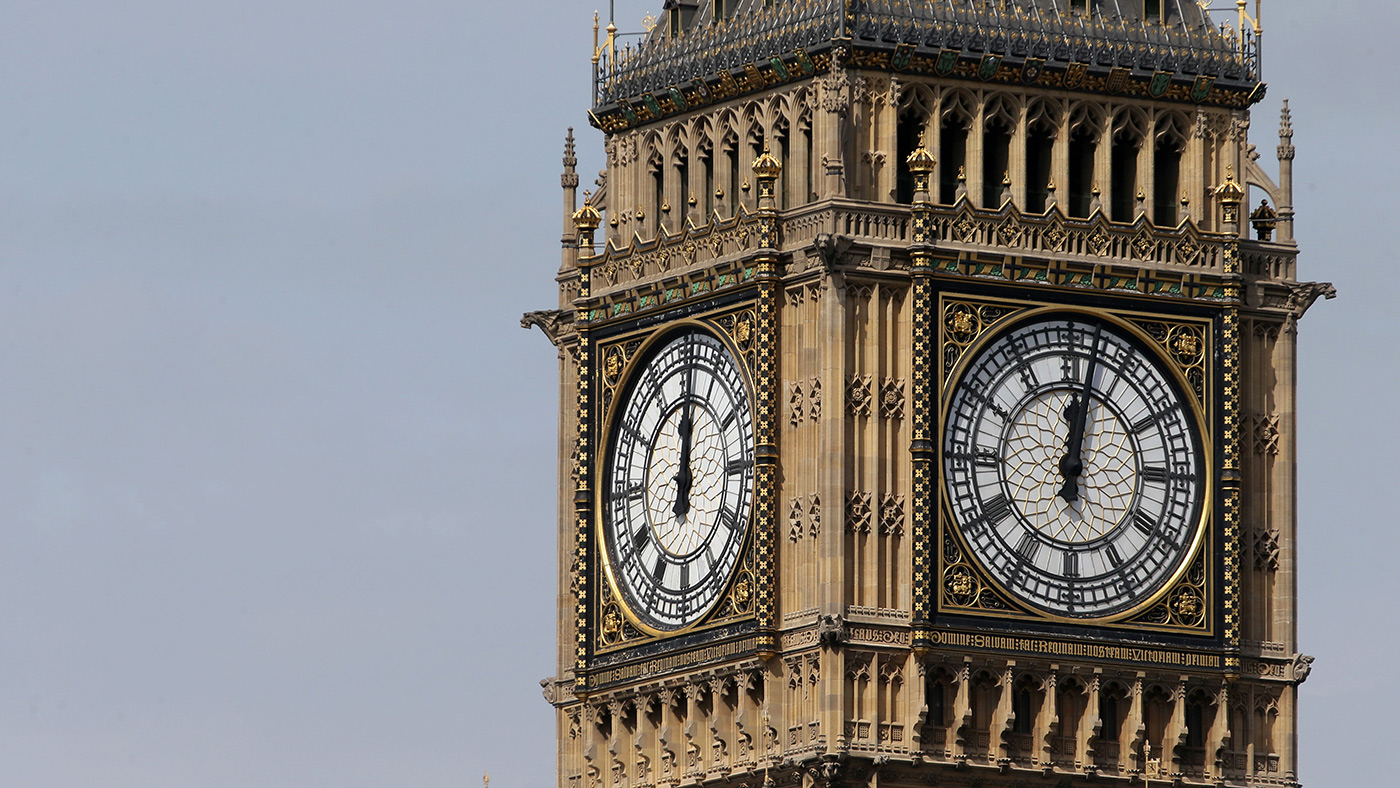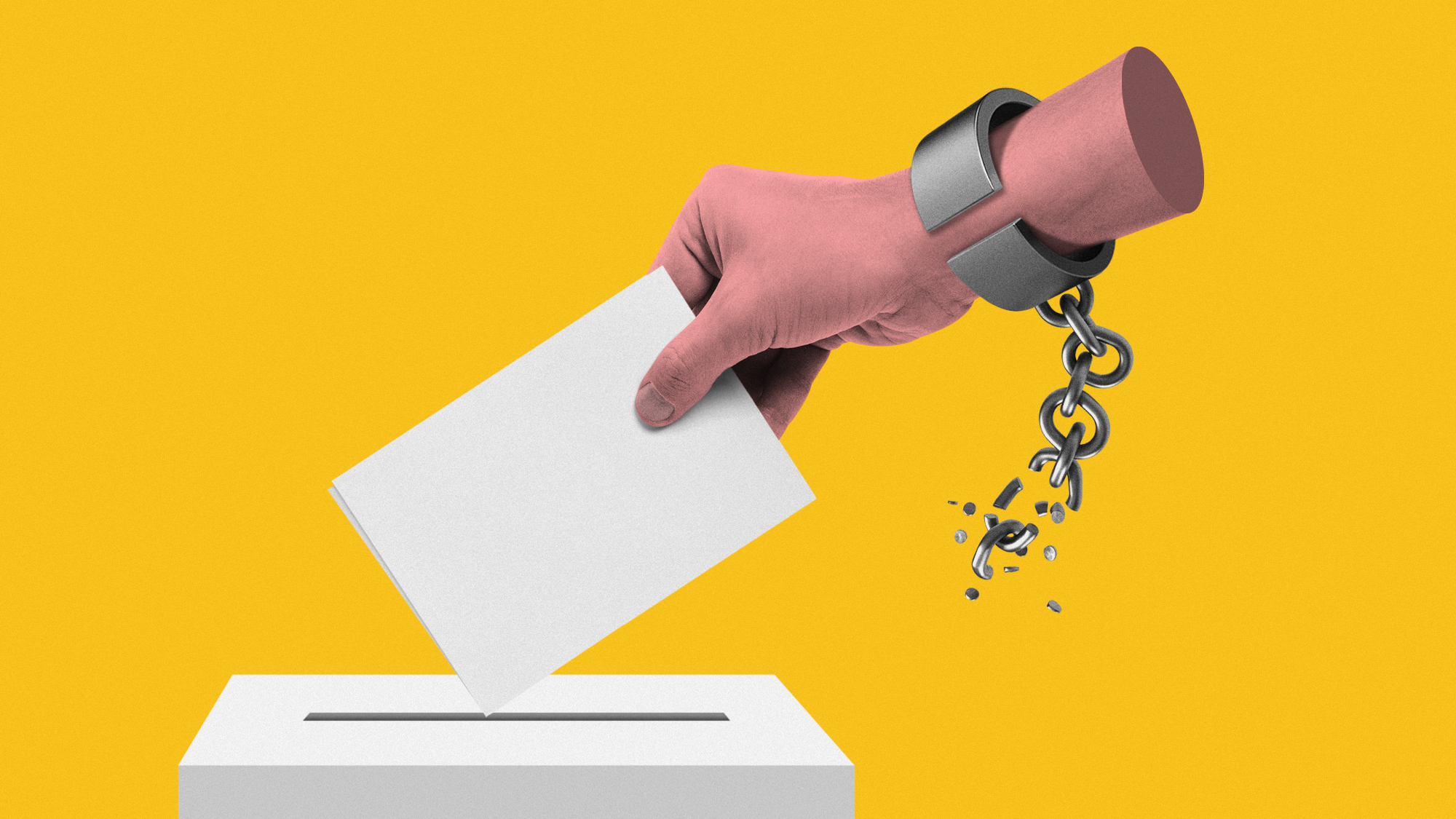Big Ben: 10 fast facts about the Great Clock
Everything you need to know about the British Parliament's famous clock and the plans to silence its bongs

A free daily email with the biggest news stories of the day – and the best features from TheWeek.com
You are now subscribed
Your newsletter sign-up was successful
Big Ben is to be silenced for four years today following its twelfth bong at midday in order for renovation work to be carried out on the Great Clock and the Elizabeth Tower.
The Lords and Commons Commissions ordered a halt to the ringing to protect the hearing of construction workers after the £29m refurbishment began, but the Prime Minister has asked for an "urgent" inquiry to see if the bell can chime more often.
With the exception of special occasions such as New Year's Eve, Big Ben will not mark the hour again until 2021.
The Week
Escape your echo chamber. Get the facts behind the news, plus analysis from multiple perspectives.

Sign up for The Week's Free Newsletters
From our morning news briefing to a weekly Good News Newsletter, get the best of The Week delivered directly to your inbox.
From our morning news briefing to a weekly Good News Newsletter, get the best of The Week delivered directly to your inbox.
Here are 10 fast facts about Big Ben:
What is the Elizabeth Tower and why is its bell called Big Ben?
The Elizabeth Tower is the parliamentary tower holding the Great Bell nicknamed Big Ben. The bell's name is likely to have come from Sir Benjamin Hall, first commissioner for works, whose name is inscribed on it, according to the UK parliamentary website. Another theory is that it was named after Ben Caunt, a champion heavyweight boxer.
When was it made?
A free daily email with the biggest news stories of the day – and the best features from TheWeek.com
In the mid 19th-century. The first bell was cast at Warners of Norton near Stockton-on-Tees. In 1857, the bell developed a four-inch crack during testing. The manufacturer and designer clashed over who was to blame. In 1858, the second bell was cast by the Whitechapel Bell Foundry in east London. A carriage, drawn by 16 white horses, transported the bell to New Palace Yard where it was raised to the belfry.
Who designed Big Ben?
Architect Charles Barry, who won the commission for rebuilding the Houses of Parliament after the 1834 fire and whose designs included a clock tower. A dispute broke out with many clockmakers wanting to be involved, so a competition was held. The respected clockmaker Edward John Dent was appointed in 1852 to build the clock to the designs of Edmund Beckett Denison, a barrister and gifted amateur clockmaker.
When did it last fall silent?
The bell last fell silent when maintenance took place in 2007 and prior to that between 1983-5 as part of a large refurbishment programme. Big Ben has marked the hour with almost unbroken service for the past 157 years.
What note does it hit?
Big Ben strikes every hour to the note of 'E' and weighs 13.7 tonnes. It's accompanied by four quarter bells that chime every 15 minutes (these will also be silenced until 2021).
How does it work?
The Great Clock is operated by a custom-built Victorian mechanism that relies on gravity to trigger the bongs. In order to stop the bells, the striking hammers will be locked and the bell disconnected from the clock mechanism. This allows Big Ben to tell the time silently. The Great Clock first started keeping time in May 1859 and in July 1859 Big Ben first struck time. BBC Radio first broadcast Big Ben's chimes to the UK on New Year's Eve 1923.
Who changes the time?
The Palace of Westminster clockmakers who are responsible for changing the time when British Summer Time finishes and Greenwich Mean Time begins – they do the same each spring. Clockmakers also care for 2,000 other clocks throughout the Palace of Westminster and the parliamentary buildings.
How is it being fixed?
The refurbishment involves dismantling the clock piece-by-piece with each cog examined and restored. The clock dials are framed in cast iron and glazed with 312 separate pieces of opal glass. Four dials will be cleaned, the hands will be refurbished, the glass will be repaired and the cast iron framework will be renewed. While the clock mechanism is out of action, a modern electric motor will drive the clock hands. Big Ben's face will be covered but to ensure the public can set their watches during the refurbishment, one working clock face will always remain visible.
Will public tours be possible?
No. Big Ben is normally open for tours three times a day, but because of the refurbishment, tours temporarily stopped last December. They will not restart until 2021 at the earliest.
How many steps are in the tower?
There are 334 steps to the belfry and another 59 to the lantern (the Ayrton Light).
MPs to bow heads for 'final bongs'
21 August
At midday today, MPs from all parties are expected to attend a solemn gathering, their heads bowed, to hear the last from one of the biggest noises at parliament: Big Ben.
The bell – and the clock that triggers it – are to be stopped while renovations are carried out on the 147-year-old building. The length of the outage has caused dismay among some MPs, as has the reason for the hiatus: health and safety concerns about the hearing of builders.
Theresa May said last week that it "can't be right" for the bell to be silenced until 2021, when the repairs are finished – although it will be rung on special occasions such as New Year and Remembrance Sunday.
Late this morning, members will gather outside the Palace of Westminster in anticipation of the last bongs. Labour's Stephen Pound MP said he would be there with at least 20 "like-minded traditionalists … with our heads bowed but hope in our hearts".
-
 How the FCC’s ‘equal time’ rule works
How the FCC’s ‘equal time’ rule worksIn the Spotlight The law is at the heart of the Colbert-CBS conflict
-
 What is the endgame in the DHS shutdown?
What is the endgame in the DHS shutdown?Today’s Big Question Democrats want to rein in ICE’s immigration crackdown
-
 ‘Poor time management isn’t just an inconvenience’
‘Poor time management isn’t just an inconvenience’Instant Opinion Opinion, comment and editorials of the day
-
 How corrupt is the UK?
How corrupt is the UK?The Explainer Decline in standards ‘risks becoming a defining feature of our political culture’ as Britain falls to lowest ever score on global index
-
 The Mandelson files: Labour Svengali’s parting gift to Starmer
The Mandelson files: Labour Svengali’s parting gift to StarmerThe Explainer Texts and emails about Mandelson’s appointment as US ambassador could fuel biggest political scandal ‘for a generation’
-
 The high street: Britain’s next political battleground?
The high street: Britain’s next political battleground?In the Spotlight Mass closure of shops and influx of organised crime are fuelling voter anger, and offer an opening for Reform UK
-
 Is a Reform-Tory pact becoming more likely?
Is a Reform-Tory pact becoming more likely?Today’s Big Question Nigel Farage’s party is ahead in the polls but still falls well short of a Commons majority, while Conservatives are still losing MPs to Reform
-
 Taking the low road: why the SNP is still standing strong
Taking the low road: why the SNP is still standing strongTalking Point Party is on track for a fifth consecutive victory in May’s Holyrood election, despite controversies and plummeting support
-
 What difference will the 'historic' UK-Germany treaty make?
What difference will the 'historic' UK-Germany treaty make?Today's Big Question Europe's two biggest economies sign first treaty since WWII, underscoring 'triangle alliance' with France amid growing Russian threat and US distance
-
 Are free votes the best way to change British society?
Are free votes the best way to change British society?Today's Big Question On 'conscience issues' like abortion and assisted dying, MPs are being left to make the most consequential social decisions without guidance
-
 Is the G7 still relevant?
Is the G7 still relevant?Talking Point Donald Trump's early departure cast a shadow over this week's meeting of the world's major democracies